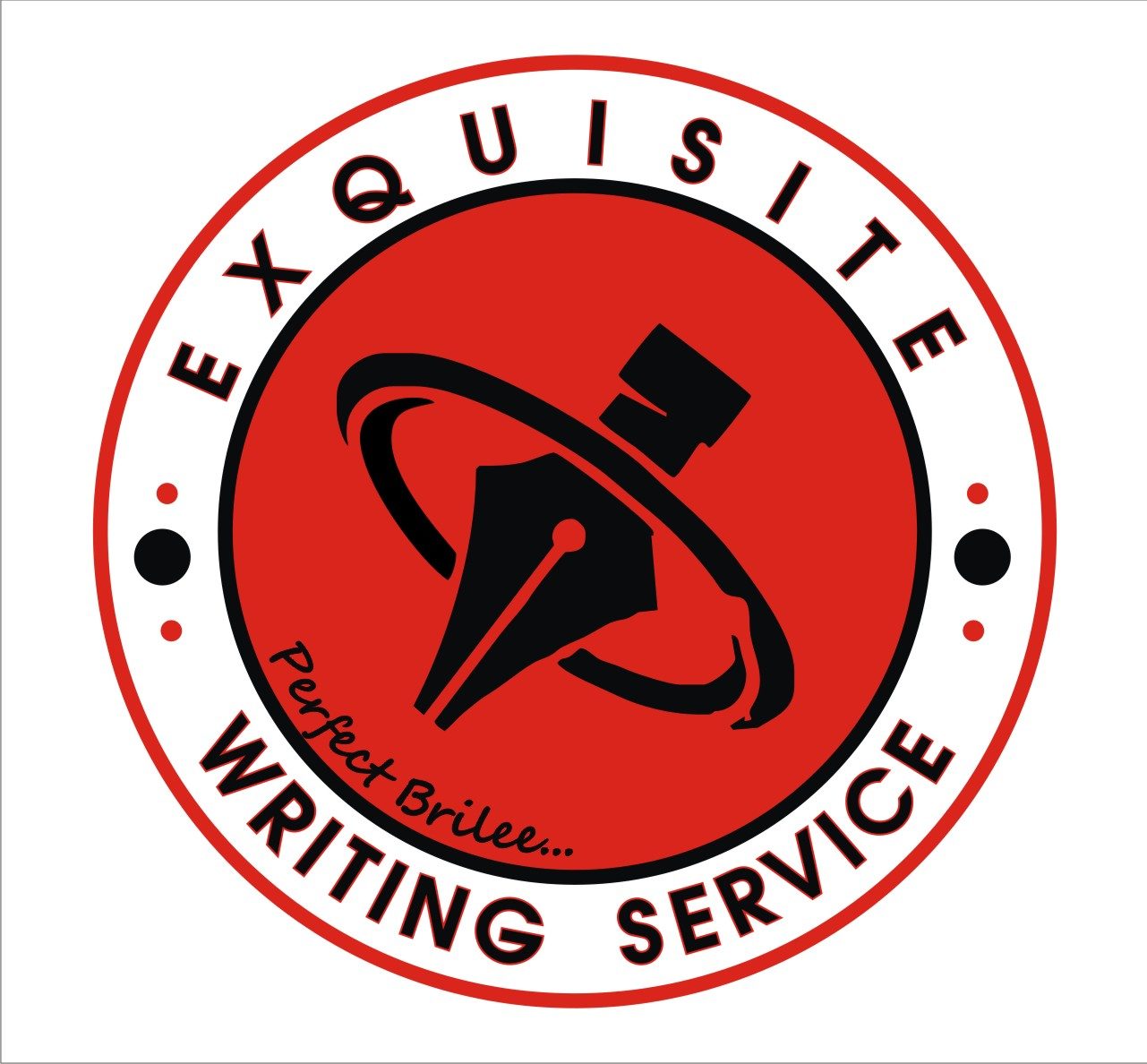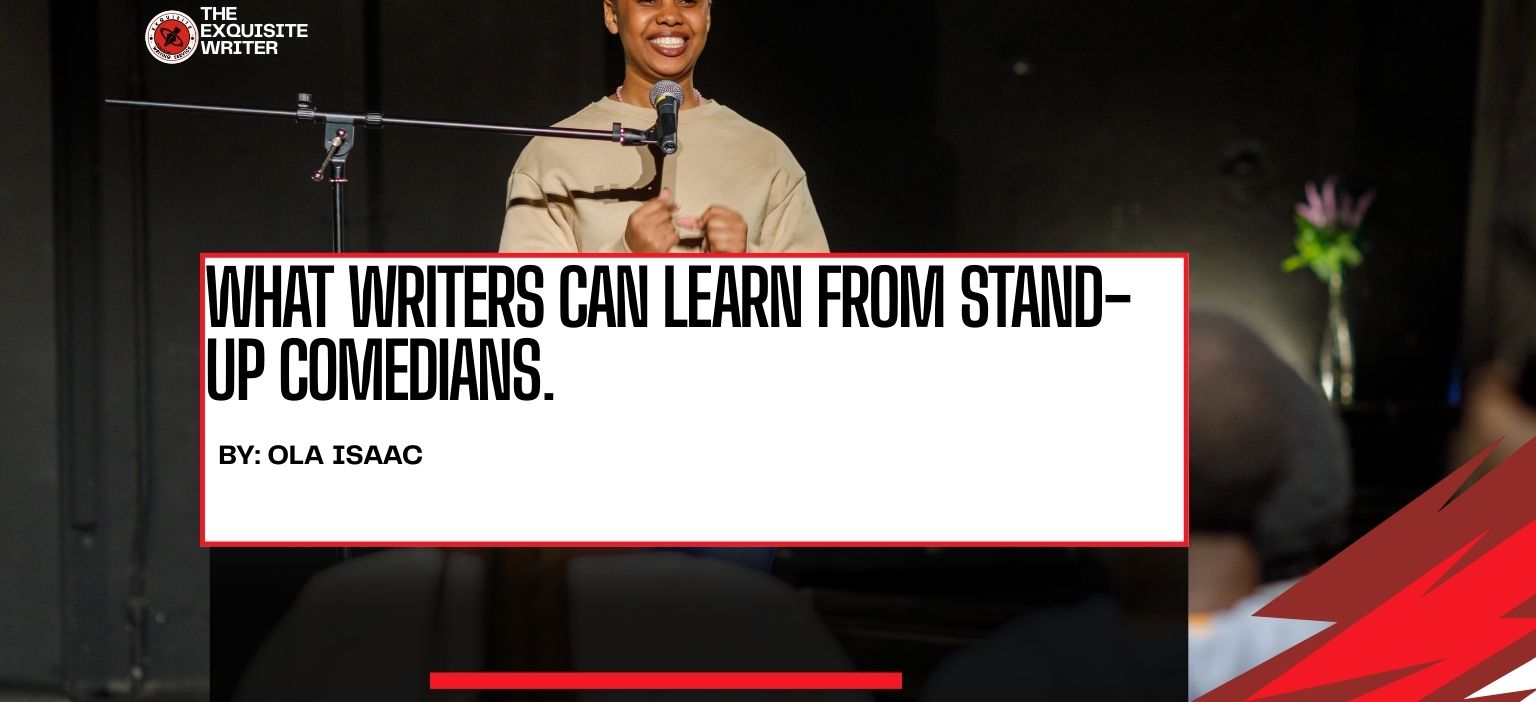Have you ever wondered if writers and stand-up comedians live in entirely different worlds? Your thought isn’t surprising.
Stand-up comedy may seem miles apart from writing, but both crafts rely on timing, emotional connection, audience awareness, and message delivery.
By looking at the way comedians build momentum, engage crowds, and refine their material, writers can adopt powerful creative techniques that improve clarity, engagement, and flow.
After all, one sits behind a keyboard, the other stands under a spotlight.
But if you strip away the punchlines and stage lights, writers and comedians are in the same business—keeping an audience hooked from the first line to the very last!
So if you are a writer, there’s a lot you can steal from their playbook, and we are here to let you know that in this article!

6 Things Writers Can Learn From Stand-Up Comedians
Here are six things writers can learn from stand-up comedians:
1. Open Strong or Lose the Room
Stand-up comedians know they have about 15 seconds or sometimes even less to convince a crowd they’re worth listening to.
In those first moments, the audience is in the decision mode:
“Do I trust this person with my attention?”
That’s why their first joke isn’t just decent.
It’s often a crowd-grabber that immediately earns a laugh, sets the mood, and makes people want to hear more.
Thus, as a writer, you should treat your opening lines with the same urgency. Your first sentence is your handshake—keep that in mind always!
A Nielsen Norman Group report shows that readers decide whether to stay on a page within 10–20 seconds, making strong openings essential in writing.
It’s your first impression, your “Hey, don’t go away just yet.”
Whether you’re crafting a sales copy, a blog post, or the first chapter of a novel, the beginning isn’t just the start—it’s the moment that decides whether your reader will stay or click away.
A strong opening might:
- Paint a vivid mental picture.
- Ask a bold, intriguing question.
- Start in the middle of the action.
- Drop a line so unusual, funny, or emotionally resonant that the reader has to know more.
- Share a surprising or mind-blowing fact or statistic.
Think of it like a comedian walking on stage.
If they open with a mumbled “So… uh…,” the crowd will definitely tune out.
But if they begin with a confident, sharp line, everyone leans in.
Thus, ask yourself these questions about your draft:
- Does it set a tone or mood right away?
- Does my opening spark curiosity?
- Does it promise something worth sticking around for?
After a careful, honest self-examination, what did you find? Not so impressive?
Then keep rewriting until it does—because no one remembers the content they never bothered to read.
Read: The Art of Freewriting: Let Ideas Flow Without Fear
2. Know Your Audience (and Play to Them)
Comedians do not always perform the exact same set in every city.
They are skilled at adapting to the people in front of them—executives at a corporate dinner, college students at a campus show, or night owls at a 1 a.m. comedy club.
They are aware that the same joke can land brilliantly with one group and flop with another, simply because of tone, timing, or cultural reference.
As a writer, too, you have to master the same skill.
You wouldn’t write a fashion brand’s Instagram caption the same way you’d write a finance company’s whitepaper.
You also wouldn’t pitch a mystery novel to a romance reader using the same language you’d use for a thriller fan.
Thus, understanding your audience goes deeper than demographics. It’s simply about mindset.
So the questions to ask are:
- What mood are they in when they find your content?
- Are they here to be informed, entertained, reassured, or persuaded?
- What cultural slang, touchpoints, or references will feel welcoming and familiar to them?
- What frustrations, challenges, or desires are they bringing to the table?
Just the way a comedian “reads the room” before diving into their set, you also “read the reader” before writing.
That way, your content will feel less like a monologue and become more like a conversation they’re glad to be part of.
3. Timing is Everything
In comedy, the difference between a roar of laughter and a chuckle does come down to a single pause. A perfectly timed beat lets the audience’s brain connect the dots, and that’s when the punchline hits twice as hard.
Writing works the same way. In places where we should have a pause, we’d use pacing.
Short, snappy sentences accelerate things. They create urgency and keep readers moving.
Longer, more deliberate sentences also slow things down.
They offer space for an idea to settle in.
Think of your writing like a piece of music: you need slower melodies for reflection, fast rhythms for excitement, and moments of silence to let the meaning land.
If every sentence is the same length, your work will feel flat, like a song that is stuck on one note.
How to control pacing in writing:
- Use paragraph breaks as a natural pause.
- Vary sentence length to create rhythm.
- Sprinkle in single-line paragraphs for a theatrical effect.
Let crucial moments breathe instead of rushing past them.
The best comedians would not just deliver words—they control the flow of an experience.
Yes, no doubt, writers can do the same.
4. Cut the Fat
Fat? Calm down! A comedian knows that once the laugh has landed, it’s time to move on.
Therefore, if they drag the joke out too long, the energy will die.
Writers face the same trap.
If you’ve already made your point, don’t keep rephrasing it.
The magic of good writing is never in length, but in its clarity.
Tight writing is powerful writing.
Every word should pull its weight—either by moving the story forward, clarifying an idea, or sparking an emotion.
If it’s not doing one of those things, it’s just taking up space.
Your editing checklist:
- Does this sentence repeat an idea I’ve already made?
- Can I cut this word without altering the meaning?
- Is this paragraph adding something fresh, or just padding?
- Could this be said in fewer words without losing the tone and voice?
When in doubt, remember: a lean sentence hits harder and sticks than one padded with filler.
Your audience isn’t reading to admire how many words you are able to use—they’re here for the value hidden inside them.
Trimming away the excess ensures that you find it fast.
Cutting-the-fat edits to try:
- Remove filler words (really, very, actually, just)
- Merge overlapping ideas into one sharp sentence
- Replace weak verbs (“was going”) with strong verbs (“went”)
- Delete throat-clearing phrases (“In my opinion,” “It’s important to note”)
5. Test, Tweak, Repeat
No comedian steps on stage with a brand-new joke and nails it perfectly the first time.
Here’s the secret: They workshop it, night after night, adding a pause there, changing a word here, switching the punchline order, until it lands exactly the way they desire.
By the time you hear it in a Netflix special, it’s been thoroughly polished through countless micro-adjustments.
Writers must embrace that same process. Our “open mic” just appears different:
- A/B testing headlines to verify which gets more clicks.
- Rework a blog post introduction until it instantly hooks the reader.
- Explore different email subject lines to enhance open rates.
- Revising a draft many times to find the perfect clarity and rhythm.
The first version is rarely the best, and trust me, that’s not a sign of failure.
That’s the process. Good writing is crafted, not born in a single shot—that is, in a single sitting.
Think of each of your drafts as a rehearsal.
You’re getting closer and closer to the exact mix of flow, rhythm, and message that will connect with your audience.
Sometimes, all it requires is replacing one weak verb, shuffling one paragraph, or cutting one bloated sentence to make a piece go from “good” to “unforgettable.”
Example Writing Test Cycle:
- Draft the idea freely
- Read aloud to test rhythm
- Remove 10–20% of unnecessary words
- Rearrange sentences to improve flow
- Share with 1–2 trusted readers
- Apply feedback and finalize
6. Be Fearless About Flopping
Every comedian has bombed.
Yes, they’ve stood under the hot lights, told a sweet joke (at least, they thought it was), and been met with awkward silence.
It’s an uncomfortable, humbling experience.
But here’s the fact: they get back up the next night and try again.
Writers experience the same sting. Have you ever poured yourself into a piece, hit “publish,” and… nothing?
No reaction, no engagement, maybe even a little negative feedback.
It’s tempting to play it safe after that. You will only want to write what you know will work.
But trust me, playing it safe is the fastest way to stagnate.
Some of your best, most original ideas will come from embarking on creative risks—experimenting with structure, trying a new tone, breaking a “rule” on purpose.
Sure, some of those risks won’t come to pass. But the more you experiment, the more you’ll be able to discover what resonates with your audience and voice.
To be frank, failure isn’t a sign you’re a bad writer. Instead, it’s a sign you’re pushing the limits of your creativity.
And every creative breakthrough you’ve ever admired, from a killer stand-up set to a bestselling novel, emanated from someone willing to flop in pursuit of something extraordinary.
Common Mistakes Writers Make (That Comedians Avoid)
- Over-explaining a point instead of letting the audience “get it”
- Starting pieces too slowly
- Using identical pacing throughout
- Avoiding creative risks to “stay safe”
- Editing only once instead of iterating multiple times
Next: Confessions of a Writer: The Weirdest Habits We All Have
Final Thoughts
Stand-up comedy and writing might look like two different skill sets, but as you have seen, they share the same mission: connect with people, keep them engaged, and make them feel something!
So the next time you’re stuck in a creative rut, have a shift—try thinking like a comedian.
What does that mean? Open strong, know your audience, time your delivery, trim the excess, and don’t be afraid to make mistakes.
Because in the end, both writers and comics know the truth: your craft isn’t about you—it’s about the audience, and presenting them with something they’ll remember.
If you’d like support refining your message or strengthening your storytelling style, The Exquisite Writer offers professional writing and content development services designed to help brands and authors communicate with clarity and impact.
Whether it’s blogs, web copy, or brand storytelling, we’ll ensure that your message hits like a standing ovation.
Great writing, like great comedy, comes from practice, awareness, and the courage to push creative boundaries.
Keep experimenting, stay observant, and let your voice evolve with every draft.

